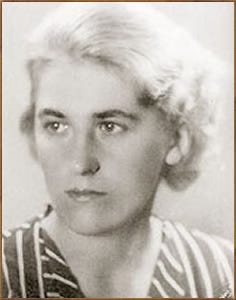Anna Swir, or Anna Świrszczyńska (1909-1984) was a Polish poet and a contemporary of Czesław Miłosz. I’ve mentioned in this newsletter and in my classes that I think Polish poets are some of the best in the world and across history, and Swir represents Polish poetry’s ascension and sophistication at a high level.
Swir was born to a poor family, but put herself through university, where she studied 15th century Polish literature. In September 1939, when Germany invaded Poland, she joined the Resistance and worked as a nurse for 63 days of the Warsaw Uprising.
Primarily known as a poet for children, she was 30 years removed from World War II before she published poems about her wartime experiences (Building the Barricade, 1974) Thereafter, she found her specific and striking voice in poetry: stark, completely surprising poems about womanhood, a woman’s body, and being separate from her body—sharing its pleasures, but pushing against its limitations.
Swir left a handful of enigmatic statements about poetry, and these give some insight into her thinking about the function of her poems:
By expressing reality, poetry masters and overcomes it. Poetry creates around a person a delicate, tender miniworld to protect them from the dreadfulness of the maxiworld….Let our words be as necessary and useful as once were words of magic. This is an unachievable ideal.
The poet should be as sensitive as an aching tooth.
Keep reading with a 7-day free trial
Subscribe to The Sharpener to keep reading this post and get 7 days of free access to the full post archives.




